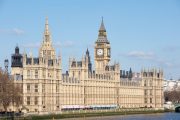New revelations in the suspicious “suicide” death of whistle-blower Dr. David Kelly point even more strongly to the possibility of murder and a subsequent cover-up, according to an explosive investigation by the British newspaper Daily Mail.
David Kelly served as a United Nations weapons-of-mass-destruction inspector in Iraq and as a scientist for the United Kingdom’s Ministry of Defense. He was widely considered the world’s foremost expert in chemical and biological weapons, even serving as a proof reader on the British government’s intelligence report about Iraqi WMDs. He disagreed with some of the claims and told his superiors, but was ignored.
Seven years ago, a strange saga began when Kelly sparked a massive scandal. He leaked details of the government’s WMD lies — used to justify invading Iraq — to various journalists. His identity was eventually revealed as the source, and Parliament called him to testify for an investigation it was conducting into the explosive allegations. Then, before he could reveal even more devastating secrets, he turned up dead.
The government, led by Prime Minister Tony Blair, immediately quashed the regular coroner’s inquest — a legal requirement in cases like this. Instead, it set up a much weaker “inquiry,” headed by Lord Hutton, into the untimely death.
But as soon as the "investigation" concluded that Kelly’s demise was a “suicide” caused by a self-inflicted knife wound, the media began picking the story apart, pointing out inconsistencies and asking tough questions that still have not been answered satisfactorily — if they were addressed at all. The inquiry has been labeled a “whitewash” and a “cover-up” by numerous media outlets, investigators, doctors, and researchers.
The two paramedics who were at the scene of Kelly’s body went public with their belief that a severed artery was not the cause of death, as the official report had claimed. "I just think it is incredibly unlikely that he died from the wrist wound we saw," paramedic Vanessa Hunt told the British press. “There just wasn’t a lot of blood. When someone cuts an artery, whether accidentally or intentionally, the blood pumps everywhere." The other paramedic offered a similar analysis.
A team of concerned scientists and doctors also banded together to form the “Kelly Investigation Group.” They, too, believed there were serious deficiencies in the inquiry, saying the official conclusion was “highly improbable.”
“Arteries in the wrist are of matchstick thickness and severing them does not lead to life-threatening blood loss,” three members of the group, all medical specialists, wrote in a letter to the Guardian newspaper calling for the inquest to be re-opened. “To have died from haemorrhage [sic], Dr Kelly would have had to lose about five pints of blood — it is unlikely that he would have lost more than a pint.”
The team also noted that the alleged amount of pain pills Kelly was said to have ingested would not have contributed to his death. Only a part of one tablet was actually found in his stomach.
Adding more doubt to the official story, documents obtained through a Freedom of Information request showed there were no finger prints on the knife Kelly supposedly used to kill himself.
"Someone who wanted to kill themselves wouldn’t go to the lengths of wiping the knife clean of fingerprints,” said British Minister of Parliament and current Transportation Secretary Norman Baker, who wrote a book about Kelly claiming he was killed because he might reveal more about the lies used in the run-up to the invasion of Iraq. "It is just very suspicious. It is one of the things that makes me think Dr. Kelly was murdered. The case should be re-opened."
A police spokesperson acknowledged the lack of fingerprints, but said it “does not change the official explanation.”
Suspicions in the case grew even more after it was revealed earlier this year that documents in the official investigation had been secretly classified by the British government for an astonishing 70 years, an unprecedented move that fanned the flames of skepticism. All medical, scientific, and photographic records were totally sealed by Lord Hutton, including the post mortem.
“This inexplicable secrecy can excite only suspicion that the authorities have something very bad indeed to hide,” noted Melanie Phillips in a report for the Daily Mail. “I myself have met people familiar with the shadowy world in which Dr Kelly moved who are certain he was murdered.” Another Daily Mail article reported that the legal basis for the gag order “has baffled experts accustomed to such matters.”
Researchers have raised countless problems with the “official” story — too many to go over in detail in one article. But some of the new information collected by the Daily Mail in a more recent article entitled “Dr David Kelly: The damning new evidence that points to a cover-up by Tony Blair’s government” is worth recounting.
“Our new revelations include the ambiguous nature of the wording on Dr Kelly’s death certificate; the existence of an anonymous letter which says his colleagues were warned to stay away from his funeral; and an extraordinary claim that the wallpaper at Dr Kelly’s home was stripped by police in the hours after he was reported missing – but before his body was found,” the paper reported, noting that its “rigorous and thorough investigation” had “turned up evidence which raises still more disturbing questions.”
The death certificate, only recently obtained, used peculiar wording in the box meant for entering the place of death. Instead of naming it, the certificate said Kelly was “found dead” at Harrowdown Hill. Experts say the wording alone is enough to open another investigation, especially since there are numerous other irregularities involving the location of Kelly’s body (like heat-sensing helicopters that, based on the official story, should have found the body when flying over).
The death certificate also states that a coroner’s inquest was performed. But it wasn’t. It also lacks a doctor’s or coroner’s signature, something all death certificates in the U.K. are required to have.
"This death certificate is evidence of a failure properly to examine the cause of Dr Kelly’s death. It is evidence of a pre-judgment of the issue. In a coroner’s inquest the cause of death would not be registered until the whole inquiry had been completed. As we see here, the cause of death was registered before the Hutton Inquiry had finished,” said former coroner and law expert Dr. Michael Powers QC, who aims to have a thorough investigation conducted.
“This is remarkable,” he told the paper. “To my mind it is evidence that the inquiry into Dr Kelly’s death was window-dressing because the conclusion had already been determined.”
On top of the Hutton Inquiry’s many obvious shortcomings, a letter received last month by one of the doctors involved in the Kelly Investigation Group claims Kelly’s colleagues were warned not to attend his funeral. Kelly’s widow also said police came to the house and tore off wallpaper, possibly searching for listening devices, shortly after Kelly was reported missing, but prior to the discovery of his body. Authorities refuse to comment on the allegation.
The doctors investigating the suspicious death said “concern about Dr Kelly’s death will continue to deepen until a full coroner’s inquest is heard,” the Daily Mail reported, adding that if such an inquest is performed, Tony Blair might well be expected to testify about why he “went to such lengths to avoid the normal, rigorous and respected course of this country’s law.”
Concluding, the paper noted that Blair’s reputation, as well as the reputation of the British legal system, will continue to suffer until a proper investigation is conducted, which “is the only way the whole truth about the Kelly affair, however uncomfortable, will emerge.”
Now, after all these years, there are hints that the truth may finally come out. The new British Attorney General announced earlier this month that he is considering re-opening the investigation. Meanwhile, the new Justice Secretary is reportedly contemplating releasing some of the records in the case that currently remain classified. Whether it will happen has been a matter of intense speculation in the British press, but if these crucial questions are ever to be resolved, a proper investigation is a must.
Photo of casket containing David Kelly’s body: AP Images




